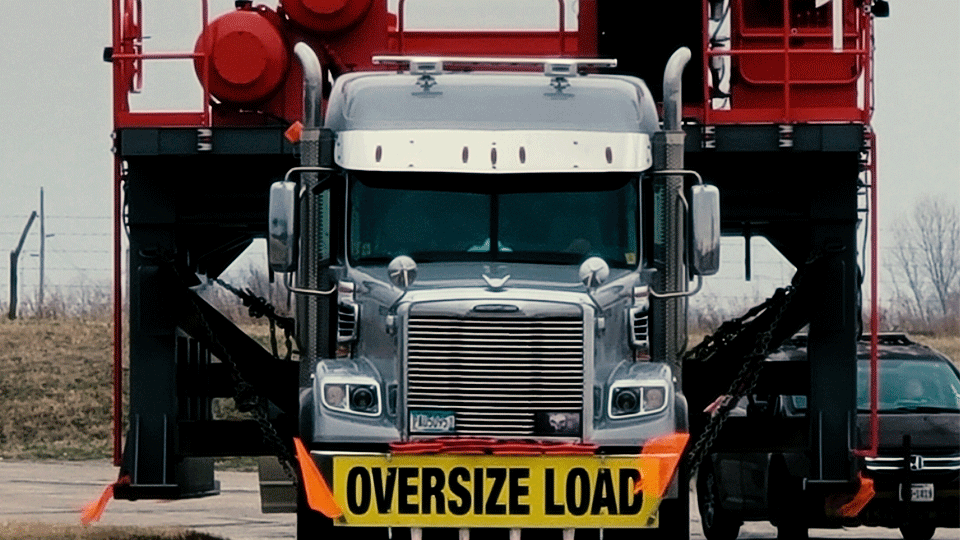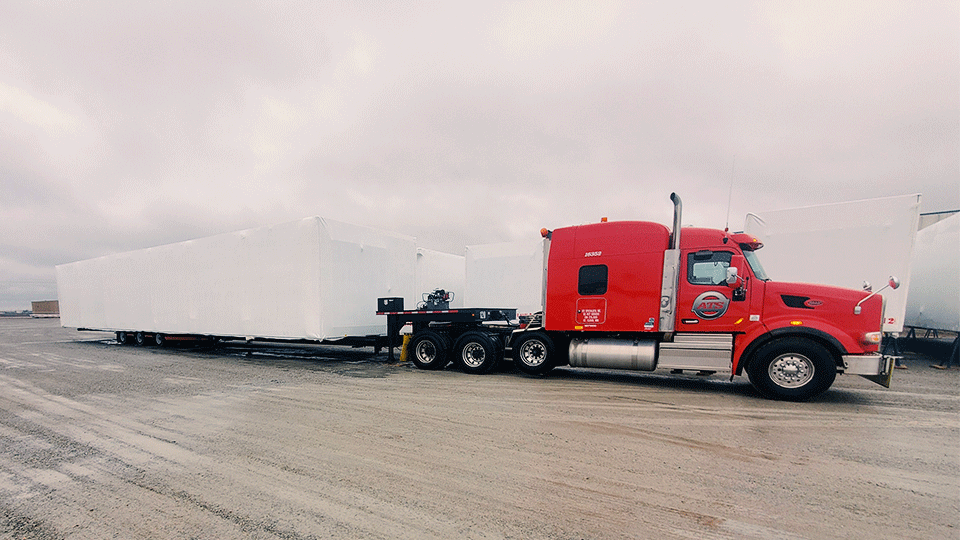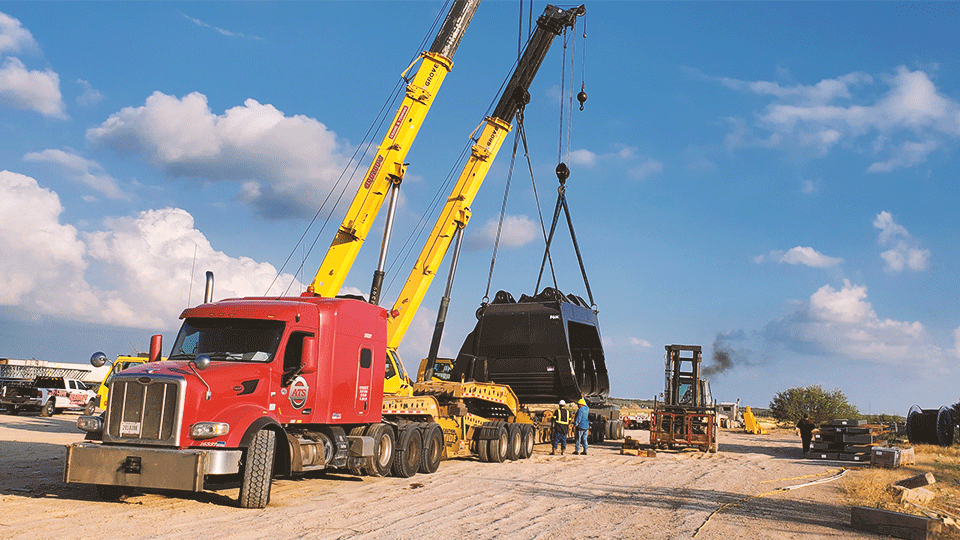
Heavy haul freight moves are intricate projects. The largest of these shipments can takes months to complete, requiring alignment and communication between a diverse group of experts.
Without getting input and approval from the proper entities (government bodies, city officials, engineering firms, etc.), heavy haul shipments can’t be moved. This is serious business; the safety of the motoring public, truck drivers, roads, bridges and overhead structures is always at stake.
For this reason, there isn’t a corner to be cut here — this isn’t the time to be frugal either.
Those who are familiar with shipping oversized/overweight (OSOW) cargo know how operationally intense these shipments can become. Adequate oversight and planning, however, can’t be neglected.
The legal requirements for OSOW shipping — permits, escort vehicles, route surveys — fluctuate based on location. Similarly, whether your heavy haul project warrants engineering assistance is also situation-dependent.
Engineering services can be a hearty expense when they’re required, cutting into an unprepared shipping budget like a warm knife through butter. That’s why predicting when these fees will impact your supply chain is a useful skill. Are you ready to acquire it?
Heavy haul trucking has become a staple service offering here at Anderson Trucking Service (ATS). Recently — over the last two decades — this segment of our business has grown substantially. Today, our open-deck/heavy haul division, ATS Specialized moves OSOW freight at the highest level.
When we’re working with customers on these loads, it’s not uncommon for questions to arise about engineering requirements and fees. These kinds of queries should never go unanswered.
In this article, you’ll get a basic rundown of heavy haul engineering services for permitting purposes and the costs associated with them. Although — like most things “heavy haul” — there is depth to this topic, below you’ll learn everything you need to know to get started including:
- What engineering services are in heavy haul trucking
- At what weight (generally) you’ll have to pay engineering fees
- What engineering services typically cost
What are Engineering Services in Heavy Haul Trucking?
Commonly called engineering surveys, when an OSOW freight shipment requires it, a private engineering firm will dispatch workers to test various support structures along its route.
Although the specific structures they test depend on your situation, engineers typically check a route’s roadways and bridges for weak areas that could (potentially) be damaged by significant weight. From here, these firms can provide recommendations for the shipment’s transit plan.
When it’s determined that a structure won’t support a shipment’s weight, bolstering it in some way or making alternative arrangements is necessary.
Sometimes, depending on the size of your shipment and the state(s) it's traveling through, involving a private engineering firm isn’t necessary. Instead, it’s common for a state to use an engineer under its employ to conduct a “bridge review” or to survey a specific portion of the road before approving a permit.
When is Engineering Needed for OSOW Freight Permits?
Evaluations as to whether engineering is required will happen on every overweight shipment exceeding 55,000 pounds. This decision will be made based on the shipment’s route; states require engineering at different thresholds.
However, the likelihood that a shipment needs bridge reviews and/or engineering surveys increases substantially at a piece weight of 120,000 pounds. As such, if your shipment exceeds 200,000 pounds, expect to pay for engineering.

What Do Engineering Services Usually Cost in Heavy Haul Trucking?
Engineering fees, like most other transportation-industry charges, fluctuate situationally. To give it a range: expect to pay $300-$40,000+ for engineering on your OSOW shipment.
The exact fee you pay will change based on:
- Your shipment’s route
- The state(s) it’s passing through
- The distance it’s traveling
- The number of bridges along the way
- Your shipment’s weight
- Heavier shipments (generally) require more attention
- Your shipment’s timeline
- How urgent is it?
This is not a comprehensive list; it’s simply meant to illustrate an array of factors influencing heavy haul engineering costs. Consult your transportation provider when setting a more-specific budget.
That said, of all the factors on this list, two things impact your engineering fees the most:
- The state(s) you’re shipping through
- The weight of your cargo
1. The State(s) You’re Shipping Through
In most instances, the price you pay for engineering will drastically change from one state to another. This often comes down to the systems each state has in place. While the digital age has made it easier — and faster — for states to churn out decisions on whether engineering is required on a certain route (automating much of this process), not every state has these in place.
States with a large volume of OSOW loads moving through them tend to have this process down to a science — reducing the number of resources needed to handle these shipments and, in turn, the price of moving them.
For example, in Texas, private engineering is necessary for shipments exceeding 254,000 pounds. A shipper sending this kind of freight around or through Texas will spend $1,500-$15,000 on engineering fees. However, in other states, private engineering (for a similarly sized load) may cost more or less.
Massachusets is one example of this. In Massachusetts, engineering surveys may be required for shipments over 130,000 pounds (this is, once again, route-dependent). The cost of this service, however, is far lower than it is in Texas, leaving shippers with a bill in the range of $300-$7,000 depending on the scope of their move.

2. The Weight of Your Cargo
Heavy haul freight comes in a plethora of sizes. Typically, “heavy haul” services are necessary when cargo weighs more than 55,000 pounds. That said, the scope of engineering work required changes greatly between a 55,000-pound shipment (which may require none) and a 300,000-pound shipment (which will require substantial engineering resources).
For this reason, expect to pay more as the overall weight of your cargo increases — regardless of which state(s) you’re shipping through.
Related: Heavy Haul Trucking: How Does Freight Weight Impact Trailer Type?
Understand Your Heavy Haul Rates (6 More Factors to Know)
For those that encounter them, heavy haul engineering fees can leave a significant impression on a company’s bottom line. At the end of the day, engineering services keep people, structures and roadways safe. As such, you can’t avoid this expense when shipping heavy haul freight.
Though they play a crucial role, engineering charges aren’t the only things impacting the final price you pay to move an OSOW shipment from A to B.
Things like utility services, first-run surveys and escort/pilot car services also make an impact.
In fact, there are several other price drivers you’ll need to keep in mind when budgeting for your next shipment. Doing so will help you formulate well-rounded expectations for what each shipment will require.
For more insight into what you should expect to pay to move your heavy haul shipments (hint: $5-$10 per mile is realistic) check out this article which covers What Does Heavy Haul Trucking Cost?
Finally, if you’d like to learn more about the OSOW transportation services we offer at ATS and how these services can help you keep your supply chain running smoothly, check out our Heavy Haul Trucking page for more information.
And, should you have any questions, don’t hesitate to reach out; we’re more than happy to help you keep your freight moving in any way you need.
